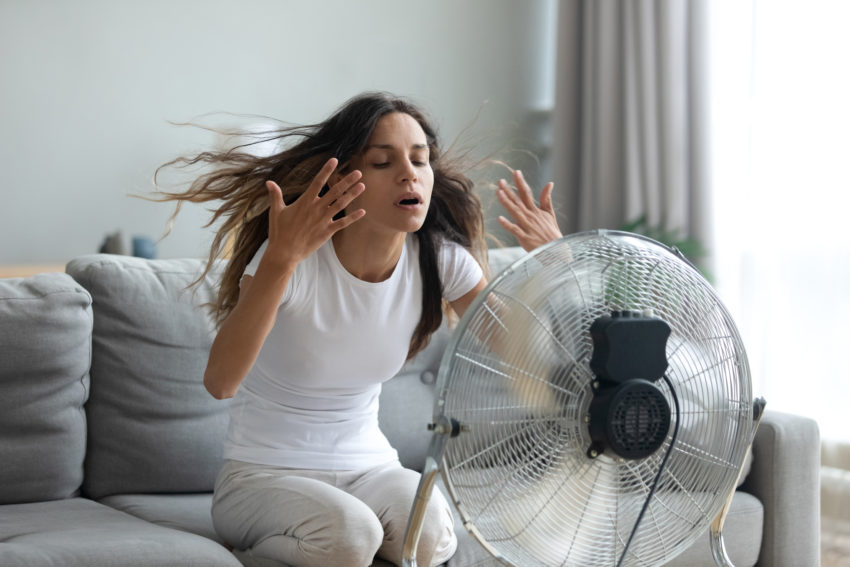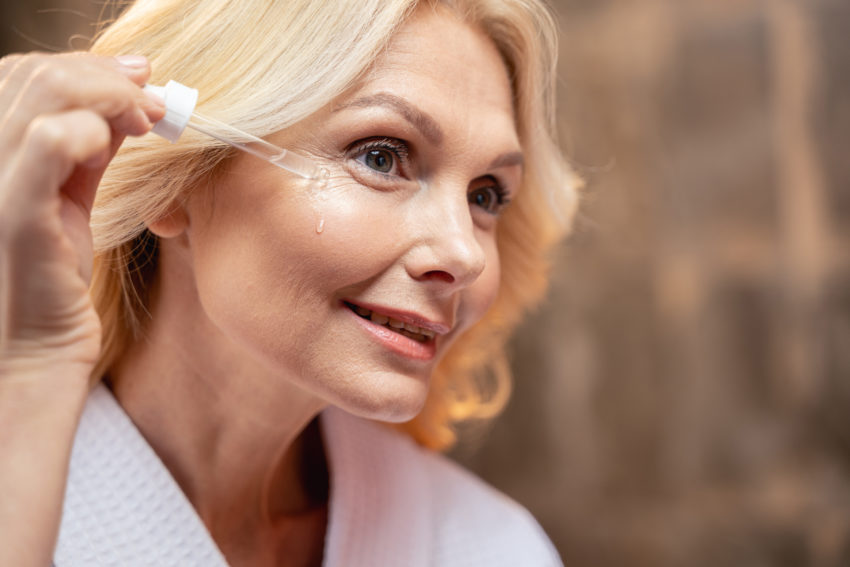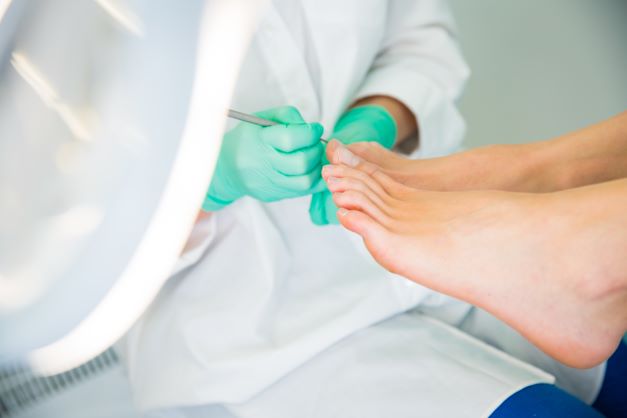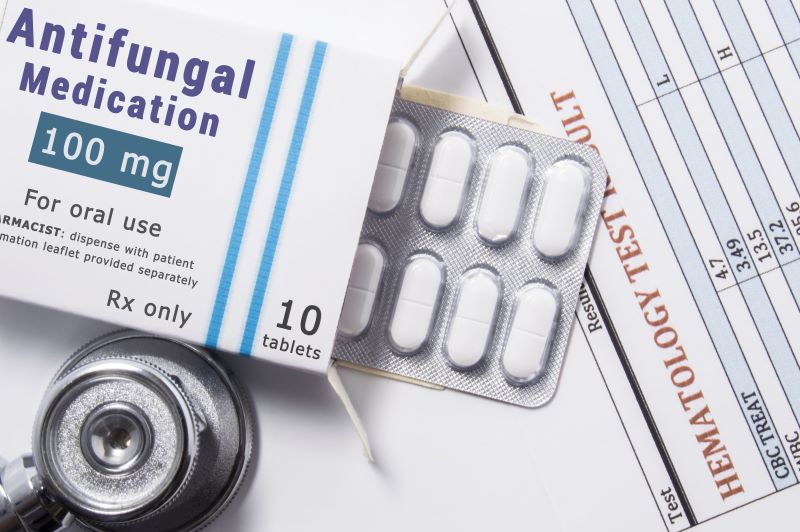What is Hyaluronic Acid? Hyaluronic Acid (HA) is a molecule that is found throughout our bodies in our fluids and…

 Skin
Skin
Excessive Sweating: What Can You Do for Hyperhidrosis
Hyperhidrosis is a condition where someone experiences abnormal and excess amounts of sweating. The sweating is not due to heat or exercise. It can interrupt daily activities, soak through clothes, and drip off of your hands. The condition can cause a lot of social anxiety and embarrassment. So what can you do for Hyperhidrosis exactly? Luckily there are a lot of different treatment options out there to manage the condition.
What Can Be Done For Excessive Sweating?
We get it. If you are a patient who suffers from hyperhidrosis, we understand that you want to seek treatment as soon as possible. The main hyperhidrosis symptoms include overactive sweat glands that cause severe sweating. This severe sweating doesn’t have to be brought on from strenuous activity or hot climates, it can happen at any time. Luckily if you have mild to severe hyperhidrosis, there are medication options you can take to help mitigate symptoms.
When discussing how to help hyperhidrosis, treatment options start off pretty simple and basic. However, if your condition is especially stubborn or intense, there are stronger treatment options that you can explore. The first treatment option that your doctor will suggest will be a prescription-strength antiperspirant. You can also try an over-the-counter antiperspirant before you get a prescription because the OTC products are usually less irritating. We suggest going to a skin care pharmacy so you can personally talk to a dermatologist about your issue. Make sure that you are purchasing an antiperspirant and not just a deodorant. Deodorants work to help the smell of the sweat but don’t actually stop you from sweating. Antiperspirants have a low dose of metal salt (usually aluminum) to block the sweat glands from producing the sweat. Now if you are still finding that the antiperspirant isn’t working to alleviate your excessive sweat issue, the next treatment option would be a prescription medication.
These medications are nerve-blocking. Taken as an oral medication, these work by blocking the chemicals that permit specific nerves to communicate with one another. Some individuals will experience less sweating when taking oral medication. However, they are not typically prescribed right off the bat because side effects can include dry mouth, blurred vision, and bladder problems. Some oral medications block the chemicals that permit nerves to communicate with each other. Some of these medications are: glycopyrrolate, oxybutynin, benztropine, and propantheline. Antidepressants have also been proven to help control sweating in patients. In some cases, antidepressants may also be prescribed to help reduce the feelings of anxiety and depression in individuals that suffer from severe hyperhidrosis.
If medications are not working, the next treatment option is botulinum toxin, or more commonly known as Botox. Botox injections will temporarily block the nerves that cause sweating. The effects of Botox injections last from six to twelve months, with repeated treatments needed throughout the duration. This Hyperhidrosis treatment is not always recommended because it can cause pain depending on the affected patient.
Surgery and Other Options
Unfortunately, if the above treatment options are not taken, there are other options, but these are very intense and come with serious recovery time and side effects. First up is microwave therapy. Microwave therapy is done using a device that delivers microwave energy to destroy sweat glands. The treatment involves two different sessions scheduled three months apart from each other. The sessions are about twenty to thirty minutes long. The side effects that come with this type of therapy are sensitive skin sensations and discomfort. Unfortunately, microwave therapy is hard to come by and can be very expensive.
Another more intense therapy is sweat gland removal surgery. If you just experience hyperhidrosis in your armpits (also known as Axillary Hyperhidrosis), your doctor might offer to remove the sweat glands in the armpit. Another less invasive technique is called suction curettage, which is another possible treatment as well.
Lastly, your doctor might offer the option of nerve surgery or sympathectomy. During this surgery, your doctor will cut, burn, or clamp off the spinal nerves that control the sweating in your hands. However, this surgery is only performed if all other methods fail. This procedure comes with great risk because it could trigger excessive sweating in other areas of your body, which is known as compensatory sweating. Sympathectomy is not an option for isolated head or neck sweating.
Home Remedies
As helpful as treatments and surgeries can be, there are also home remedies that you can try to improve your daily life living with hyperhidrosis.
- Although we mentioned this before, using a daily antiperspirant from the drug store may help alleviate symptoms. An antiperspirant doesn’t have to be used solely on your armpits. You can apply it to the bottoms of your feet, the top of your head, or any other area where you experience excess sweating.
- Astringents. Using over-the-counter astringents such as Zilactin can be applied to the affected area to help lessen symptoms.
- Bathe daily. Bathing daily will help clear the skin of any bacteria. Be sure to dry yourself completely afterwards to ensure all the bacteria is gone.
- Wear socks and shoes made of natural, breathable materials. Natural materials like leather can help your feet breathe more easily. When exercising, wear moisture-wicking athletic clothes and socks to help control the sweat.
- Change your socks twice a day. In between changes, make sure to dry your feet off completely. In addition to changing your socks, try to go barefoot as often as possible.
- Perform relaxation techniques. Yoga, meditation, and biofeedback are all great methods to help you control your high-stress levels that often lead to hyperhidrosis.
Here at Apotheco, we understand how difficult living with hyperhidrosis can be. If you have questions about the condition or the treatment options available, please contact us or your doctor today! If you have any other questions you need to be answered about your skin, please reach out to your local Apotheco pharmacy. We are here to help.
Sources
This blog is based on research and/or other scientific articles and is written by our experienced Chief Strategy Officer and Pharmacist, Ronak Desai. This blog is fact checked by our educated Pharmacist in Charge, Darshan Patel, who additionally runs our Apotheco Manhattan location.
Here at Apotheco Pharmacy Group, our goal is to provide the most up to date and accurate information on health and dermatology related topics. We do this to ensure our readers can make informed decisions based on factual content. All blogs undergo an extensive review process before posted.
This blog contains trusted sources. All sources are listed at the bottom of this article with hyperlinks that take you directly to the source.





